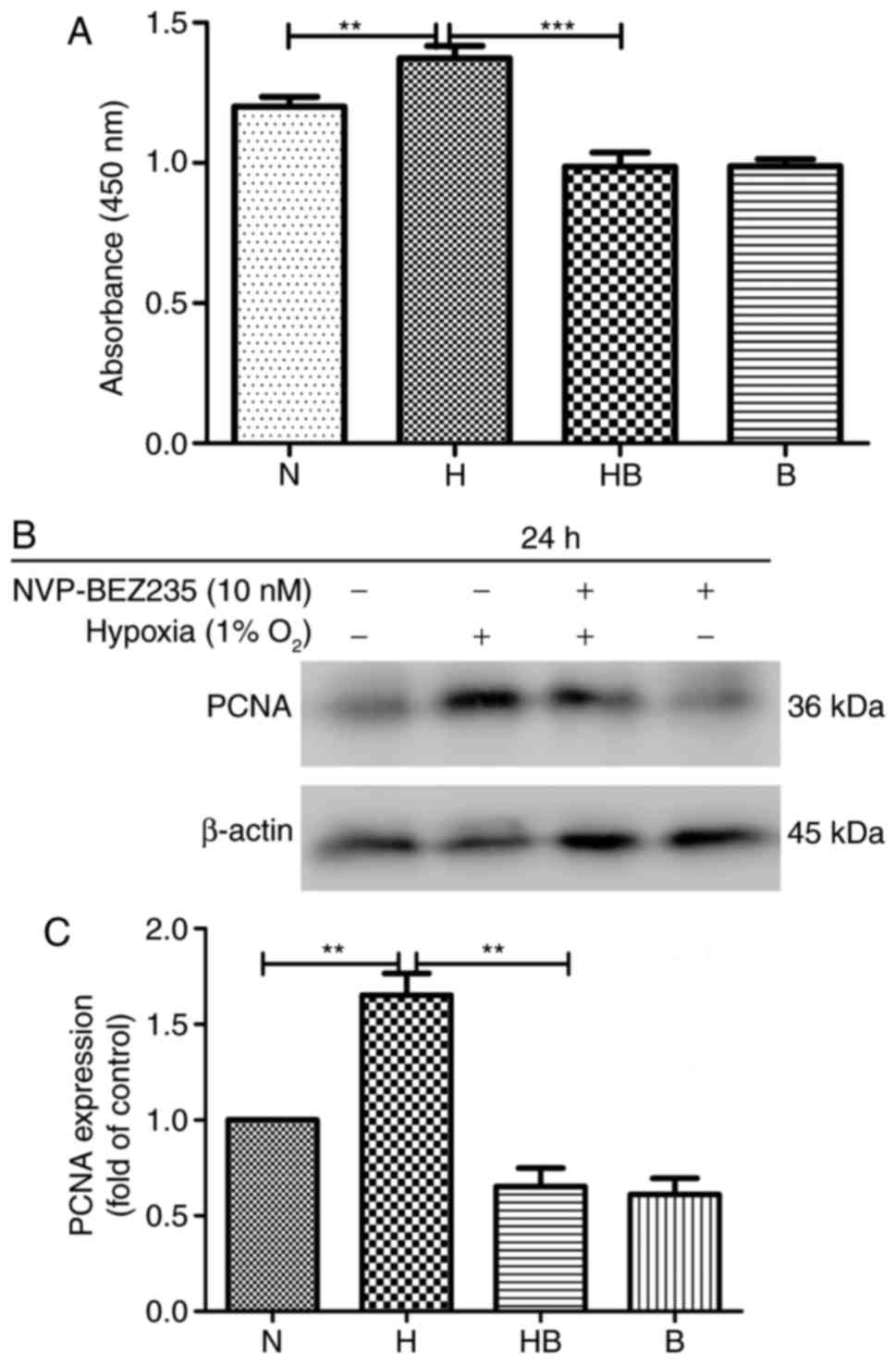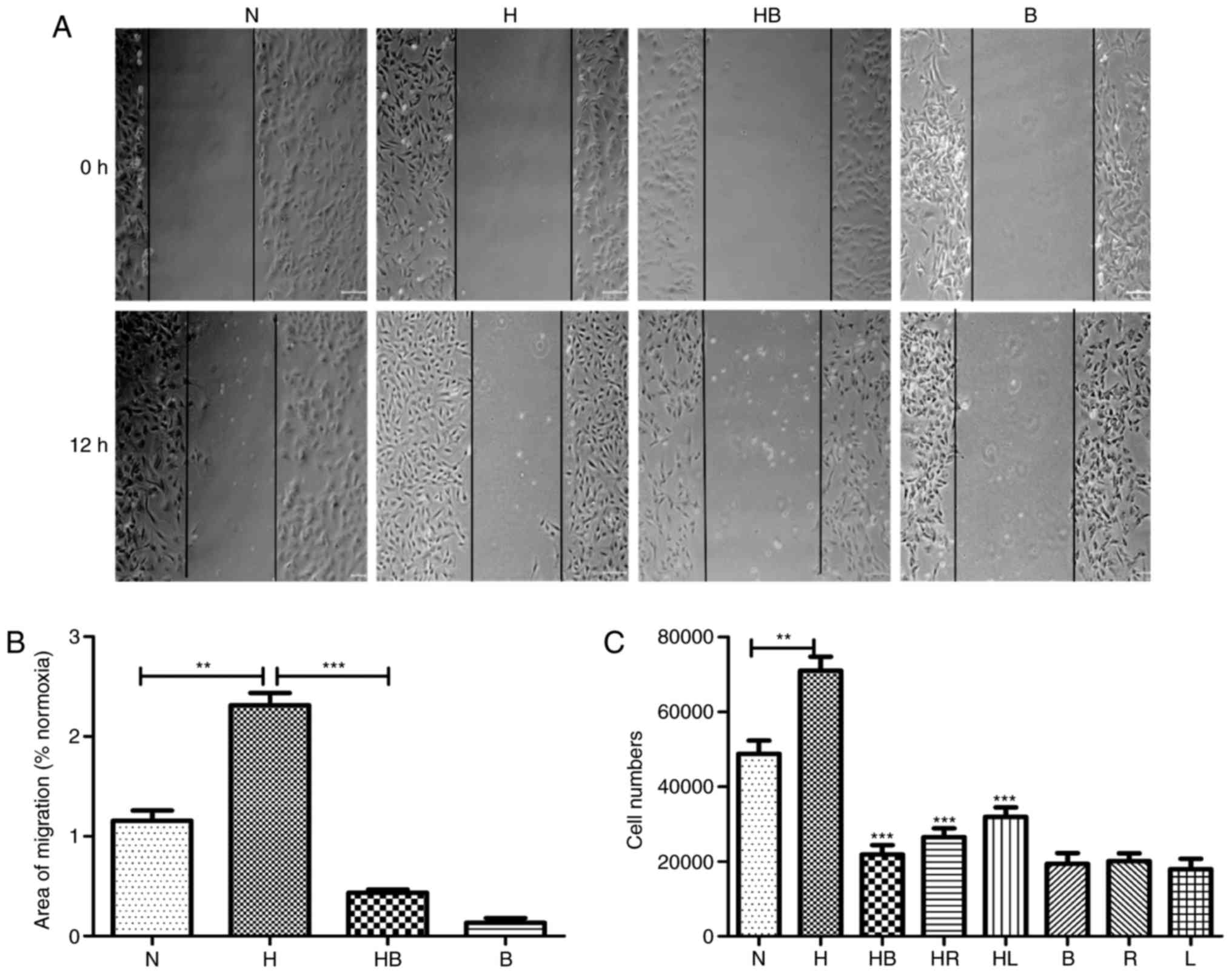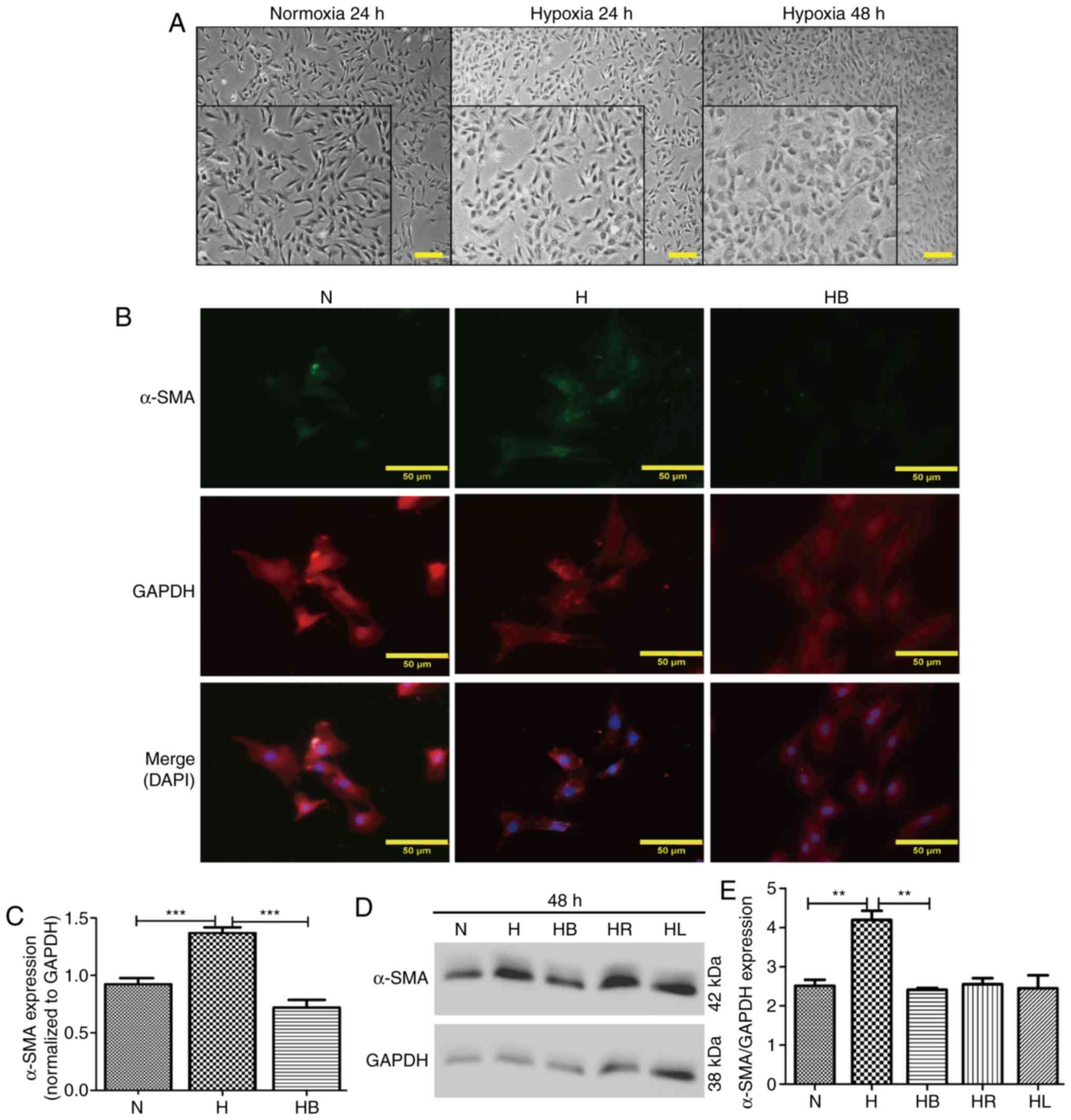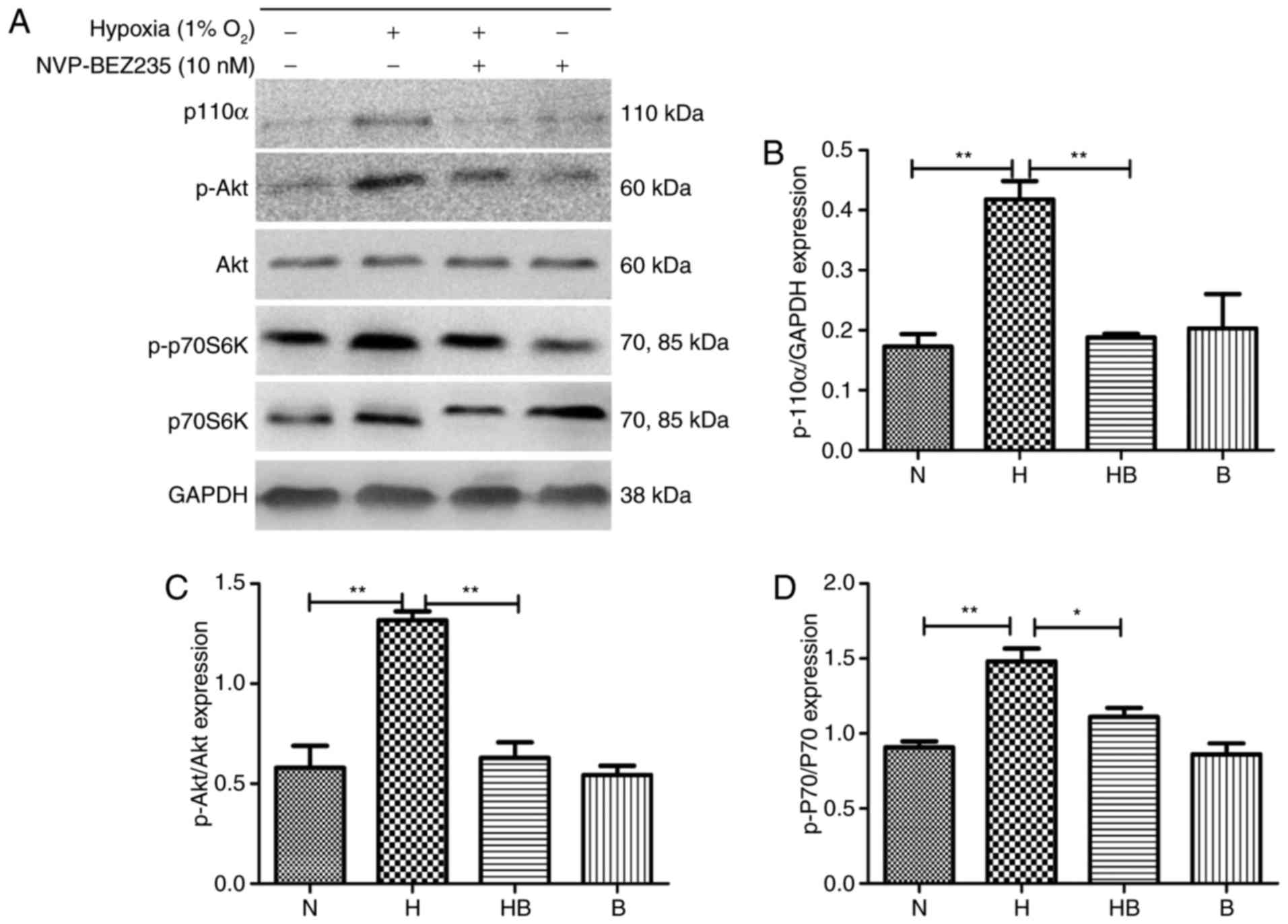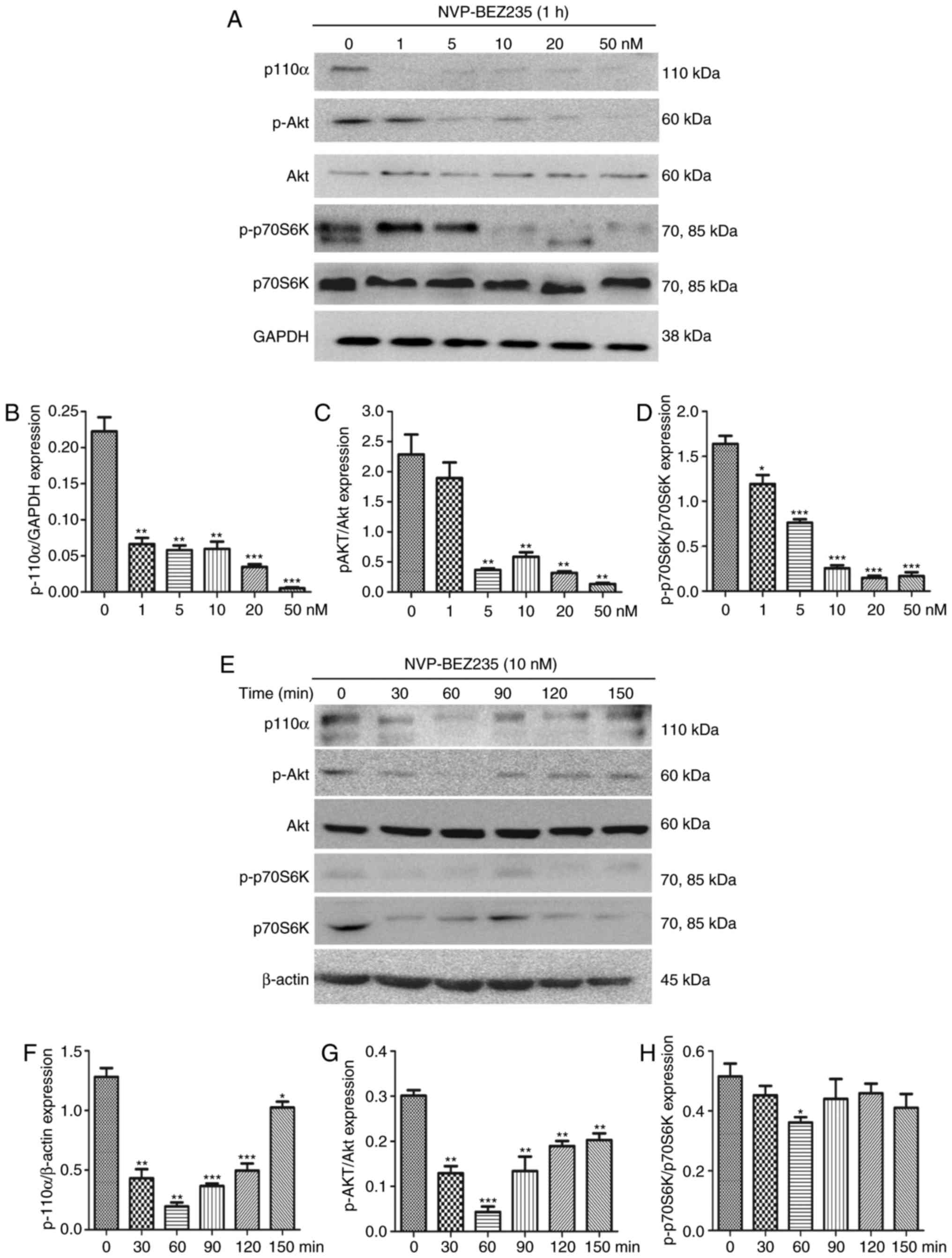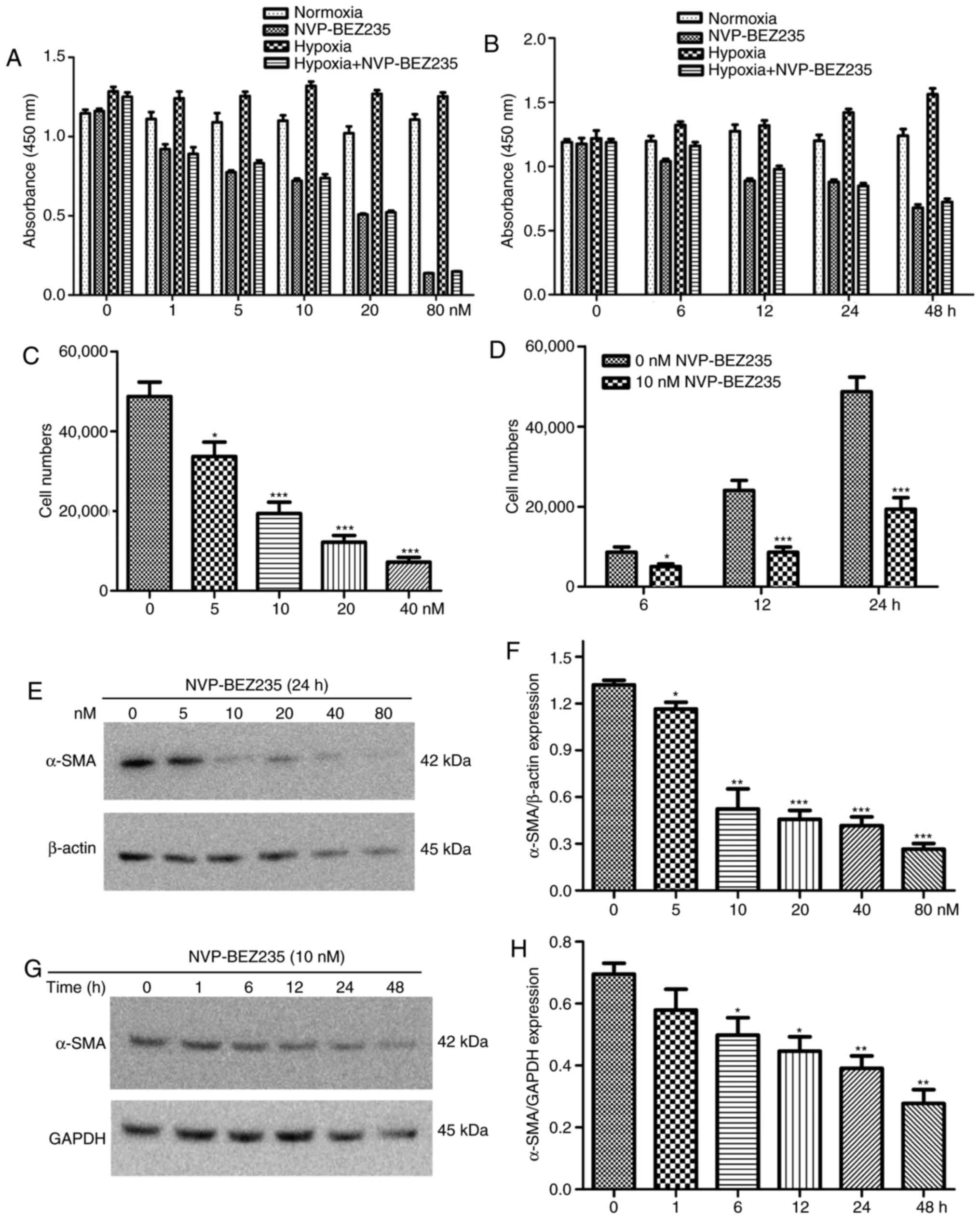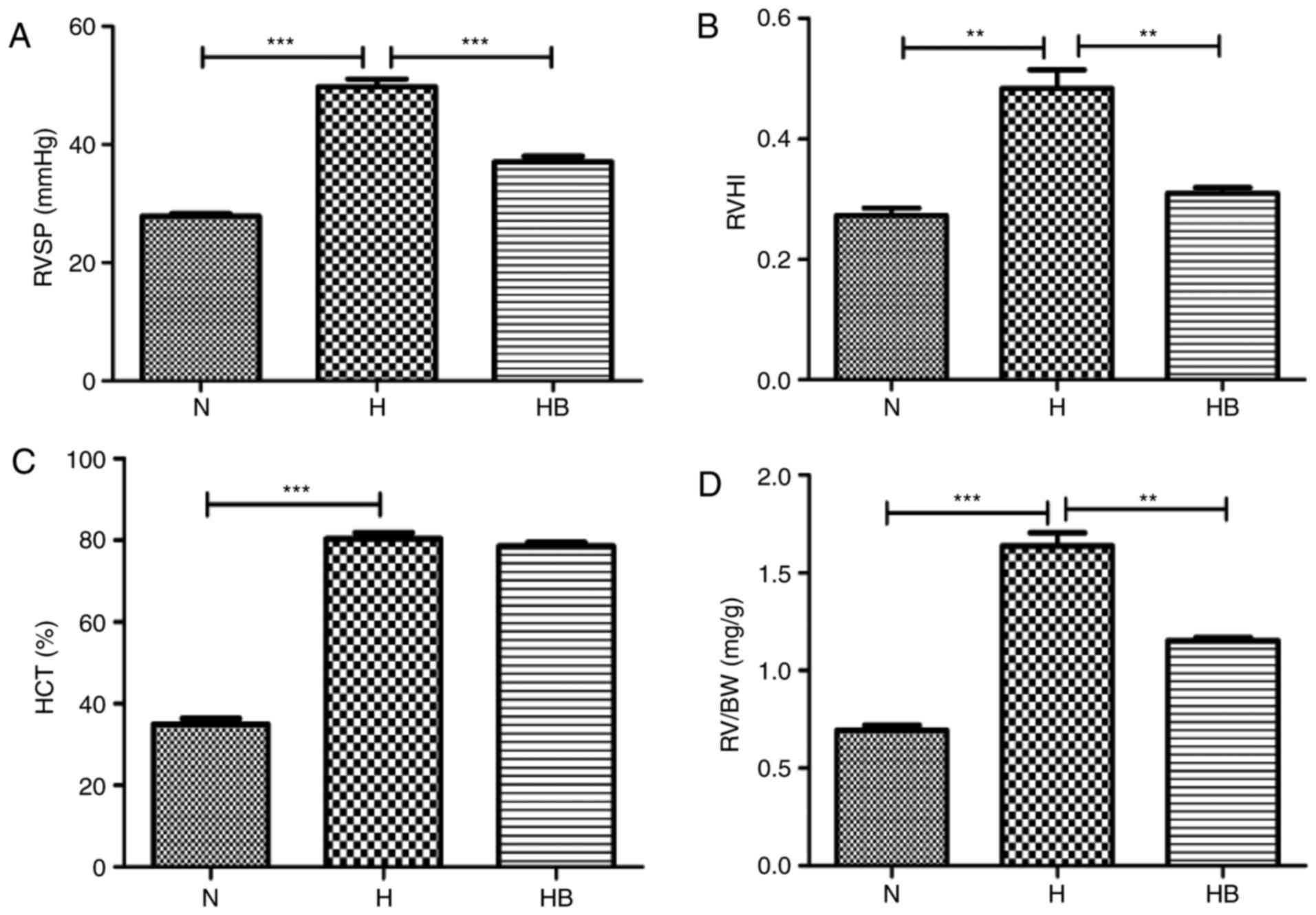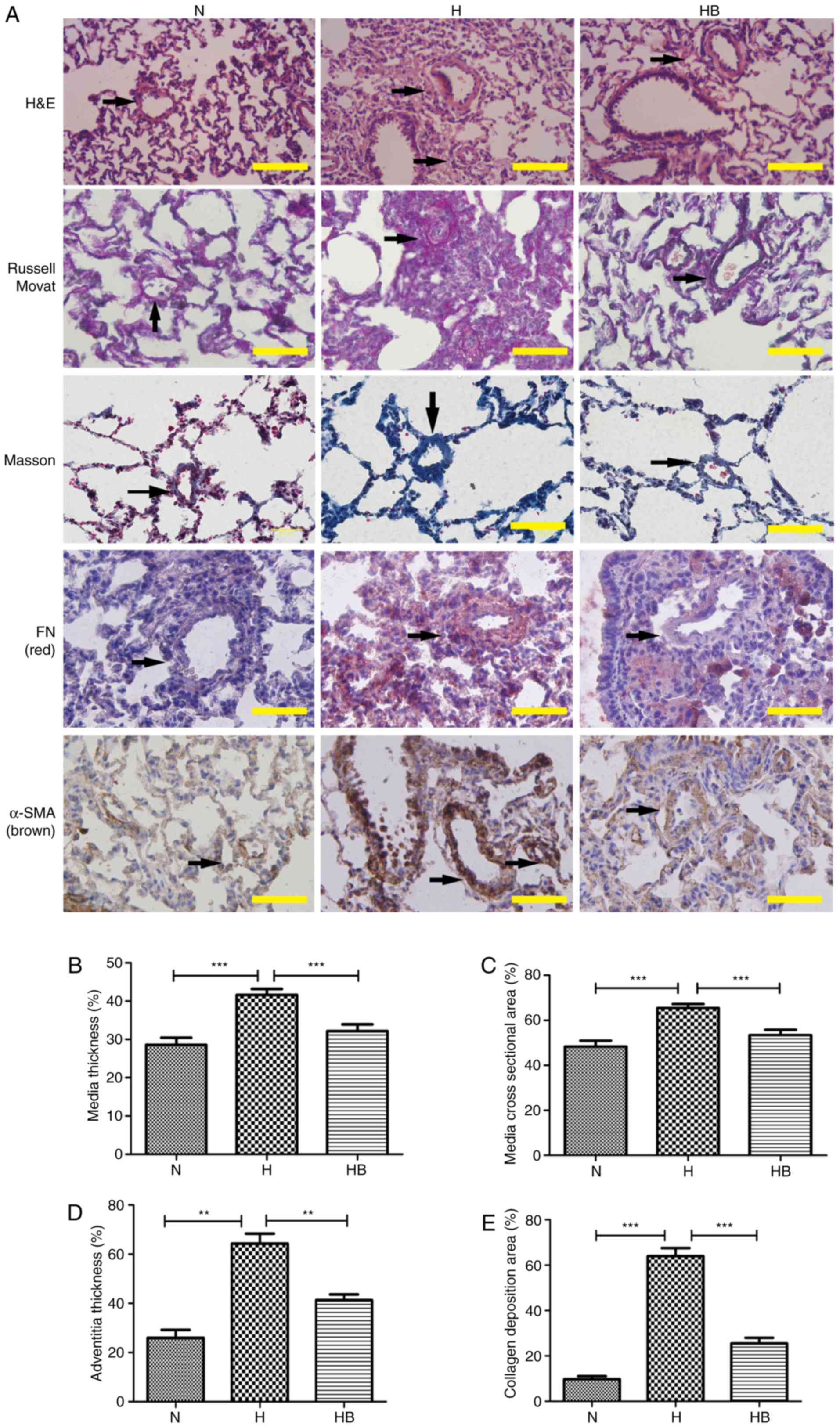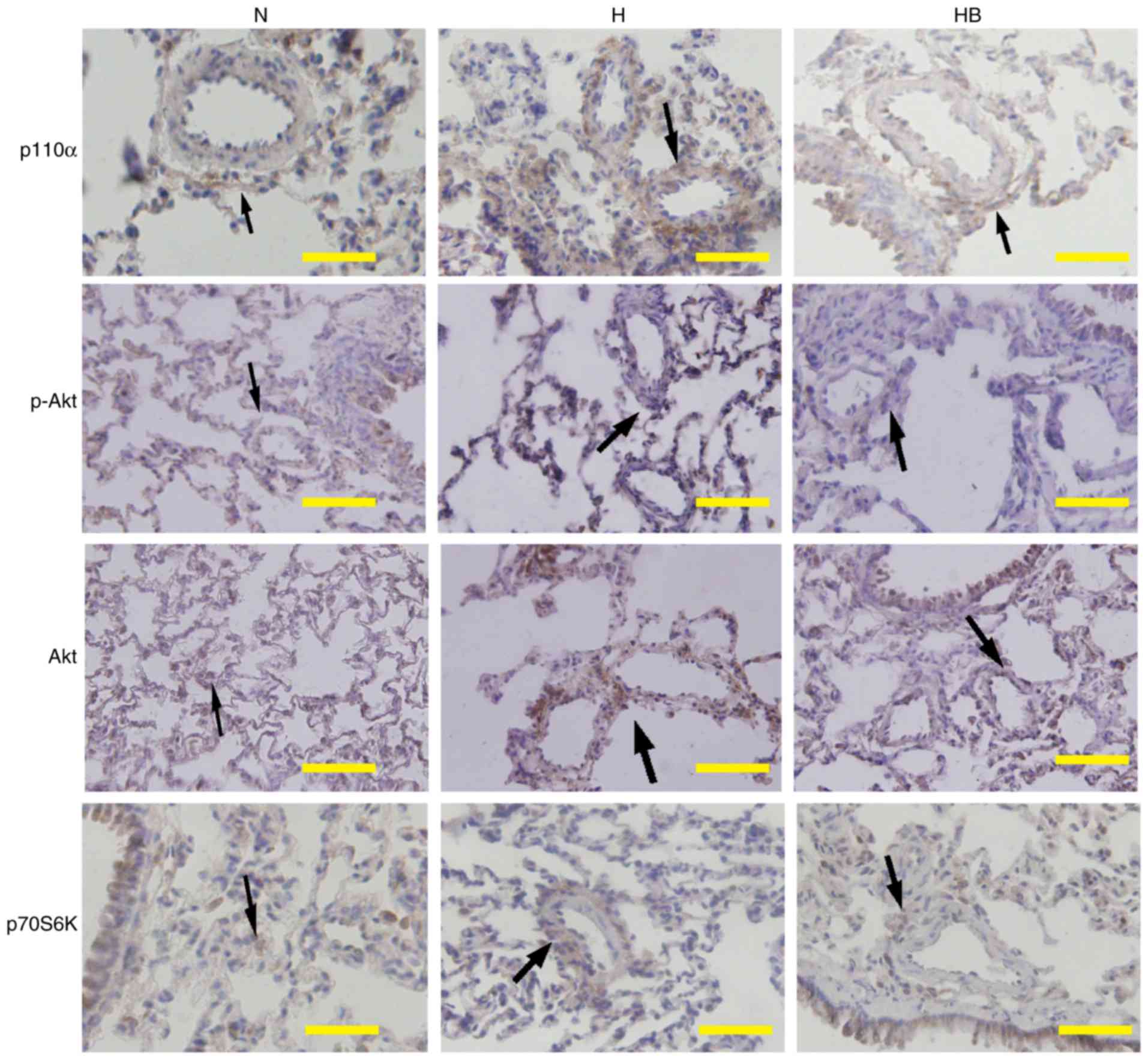|
1
|
Oudiz RJ: Classification of pulmonary
hypertension. Cardiol Clin. 34:359–361. 2016. View Article : Google Scholar : PubMed/NCBI
|
|
2
|
Poor HD, Girgis R and Studer SM: World
Health Organization Group III pulmonary hypertension. Prog
Cardiovasc Dis. 55:119–127. 2012. View Article : Google Scholar : PubMed/NCBI
|
|
3
|
Nathan SD and Hassoun PM: Pulmonary
hypertension due to lung disease and/or hypoxia. Clin Chest Med.
34:695–705. 2013. View Article : Google Scholar : PubMed/NCBI
|
|
4
|
Veit F, Pak O, Brandes RP and Weissmann N:
Hypoxia-dependent reactive oxygen species signaling in the
pulmonary circulation: Focus on ion channels. Antioxid Redox
Signal. 22:537–552. 2015. View Article : Google Scholar :
|
|
5
|
Humbert M, Montani D, Evgenov OV and
Simonneau G: Definition and classification of pulmonary
hypertension. Handb Exp Pharmacol. 218:3–29. 2013. View Article : Google Scholar : PubMed/NCBI
|
|
6
|
Veith C, Schermuly RT, Brandes RP and
Weissmann N: Molecular mechanisms of hypoxia-inducible
factor-induced pulmonary arterial smooth muscle cell alterations in
pulmonary hypertension. J Physiol. 594:1167–1177. 2016. View Article : Google Scholar
|
|
7
|
Stenmark KR, Nozik-Grayck E,
Gerasimovskaya E, Anwar A, Li M, Riddle S and Frid M: The
adventitia: Essential role in pulmonary vascular remodeling. Compr
Physiol. 1:141–161. 2011.PubMed/NCBI
|
|
8
|
Chazova I, Loyd JE, Zhdanov VS, Newman JH,
Belenkov Y and Meyrick B: Pulmonary artery adventitial changes and
venous involvement in primary pulmonary hypertension. Am J Pathol.
146:389–397. 1995.PubMed/NCBI
|
|
9
|
Krick S, Hänze J, Eul B, Savai R, Seay U,
Grimminger F, Lohmeyer J, Klepetko W, Seeger W and Rose F:
Hypoxia-driven proliferation of human pulmonary artery fibroblasts:
Cross-talk between HIF-1alpha and an autocrine angiotensin system.
FASEB J. 19:857–859. 2005. View Article : Google Scholar : PubMed/NCBI
|
|
10
|
Stenmark KR, Davie N, Frid M,
Gerasimovskaya E and Das M: Role of the adventitia in pulmonary
vascular remodeling. Physiology. 21:134–145. 2006. View Article : Google Scholar : PubMed/NCBI
|
|
11
|
Das M, Bouchey DM, Moore MJ, Hopkins DC,
Nemenoff RA and Stenmark KR: Hypoxia-induced proliferative response
of vascular adventitial fibroblasts is dependent on g
protein-mediated activation of mitogen-activated protein kinases. J
Biol Chem. 276:15631–15640. 2001. View Article : Google Scholar : PubMed/NCBI
|
|
12
|
Si Y, Ren J, Wang P, Rateri DL, Daugherty
A, Shi XD, Kent KC and Liu B: Protein kinase C-delta mediates
adventitial cell migration through regulation of monocyte
chemoattractant protein-1 expression in a rat angioplasty model.
Arterioscler Thromb Vasc Biol. 32:943–954. 2012. View Article : Google Scholar : PubMed/NCBI
|
|
13
|
Conte E, Fruciano M, Fagone E, Gili E,
Caraci F, Iemmolo M, Crimi N and Vancheri C: Inhibition of PI3K
prevents the proliferation and differentiation of human lung
fibroblasts into myofibroblasts: The role of class I P110 isoforms.
PLoS One. 6:e246632011. View Article : Google Scholar : PubMed/NCBI
|
|
14
|
Das M, Dempsey EC, Reeves JT and Stenmark
KR: Selective expansion of fibroblast subpopulations from pulmonary
artery adventitia in response to hypoxia. Am J Physiol Lung Cell
Mol Physiol. 282:L976–L986. 2002. View Article : Google Scholar : PubMed/NCBI
|
|
15
|
Zhang L, Li Y, Liu Y, Wang X, Chen M, Xing
Y and Zhu D: STAT3-mediated MMP-2 expression is required for
15-HETE-induced vascular adventitial fibroblast migration. J
Steroid Biochem Mol Biol. 149:106–117. 2015. View Article : Google Scholar : PubMed/NCBI
|
|
16
|
Zhang L, Chen Y, Li G, Chen M, Huang W,
Liu Y and Li Y: TGF-β1/FGF-2 signaling mediates the 15-HETE-induced
differentiation of adventitial fibroblasts into myofibroblasts.
Lipids Health Dis. 15:22016. View Article : Google Scholar
|
|
17
|
Li Y, Zhang L, Wang X, Chen M, Liu Y, Xing
Y, Wang X, Gao S and Zhu D: Elk-1-mediated 15-lipoxygenase
expression is required for hypoxia-induced pulmonary vascular
adventitial fibroblast dynamics. Acta Physiol (Oxf). 218:276–289.
2016. View Article : Google Scholar
|
|
18
|
Zhang Y, Talwar A, Tsang D, Bruchfeld A,
Sadoughi A, Hu M, Omonuwa K, Cheng KF, Al-Abed Y and Miller EJ:
Macrophage migration inhibitory factor mediates hypoxia-induced
pulmonary hypertension. Mol Med. 18:215–223. 2012. View Article : Google Scholar :
|
|
19
|
Anwar A, Li M, Frid MG, Kumar B,
Gerasimovskaya EV, Riddle SR, McKeon BA, Thukaram R, Meyrick BO,
Fini MA and Stenmark KR: Osteopontin is an endogenous modulator of
the constitutively activated phenotype of pulmonary adventitial
fibroblasts in hypoxic pulmonary hypertension. Am J Physiol Lung
Cell Mol Physiol. 303:L1–L11. 2012. View Article : Google Scholar : PubMed/NCBI
|
|
20
|
Yuan W, Liu W, Cai H, Sun X, Yang D, Xu F
and Jin C: SB-431542, a specific inhibitor of the TGF-β type I
receptor inhibits hypoxia-induced proliferation of pulmonary artery
adventitial fibroblasts. Pharmazie. 71:94–100. 2016.PubMed/NCBI
|
|
21
|
Welsh DJ, Scott PH and Peacock AJ: p38 MAP
kinase isoform activity and cell cycle regulators in the
proliferative response of pulmonary and systemic artery fibroblasts
to acute hypoxia. Pulm Pharmacol Ther. 19:128–138. 2006. View Article : Google Scholar
|
|
22
|
Carlin CM, Celnik DF, Pak O, Wadsworth R,
Peacock AJ and Welsh DJ: Low-dose fluvastatin reverses the hypoxic
pulmonary adventitial fibroblast phenotype in experimental
pulmonary hypertension. Am J Respir Cell Mol Biol. 47:140–148.
2012. View Article : Google Scholar : PubMed/NCBI
|
|
23
|
Panzhinskiy E, Zawada WM, Stenmark KR and
Das M: Hypoxia induces unique proliferative response in adventitial
fibroblasts by activating PDGFβ receptor-JNK1 signalling.
Cardiovasc Res. 95:356–365. 2012. View Article : Google Scholar : PubMed/NCBI
|
|
24
|
Gerasimovskaya EV, Tucker DA and Stenmark
KR: Activation of phosphatidylinositol 3-kinase, Akt, and mammalian
target of rapamycin is necessary for hypoxia-induced pulmonary
artery adventitial fibroblast proliferation. J Appl Physiol (1985).
98:722–731. 2005. View Article : Google Scholar
|
|
25
|
Garat CV, Crossno JT Jr, Sullivan TM,
Reusch JE and Klemm DJ: Inhibition of phosphatidylinositol
3-kinase/Akt signaling attenuates hypoxia-induced pulmonary artery
remodeling and suppresses CREB depletion in arterial smooth muscle
cells. J Cardiovasc Pharmacol. 62:539–548. 2013. View Article : Google Scholar : PubMed/NCBI
|
|
26
|
Fan Z, Li C, Qin C, Xie L, Wang X, Gao Z,
Qiangbacuozhen, Wang T, Yu L and Liu H: Role of the PI3K/AKT
pathway in modulating cytoskeleton rearrangements and phenotype
switching in rat pulmonary arterial vascular smooth muscle cells.
DNA Cell Biol. 33:12–19. 2014. View Article : Google Scholar
|
|
27
|
Woodward HN, Anwar A, Riddle S,
Taraseviciene-Stewart L, Fragoso M, Stenmark KR and Gerasimovskaya
EV: PI3K, Rho, and ROCK play a key role in hypoxia-induced ATP
release and ATP-stimulated angiogenic responses in pulmonary artery
vasa vasorum endothelial cells. Am J Physiol Lung Cell Mol Physiol.
297:L954–L964. 2009. View Article : Google Scholar : PubMed/NCBI
|
|
28
|
Stenmark KR, Tuder RM and El Kasmi KC:
Metabolic reprogramming and inflammation act in concert to control
vascular remodeling in hypoxic pulmonary hypertension. J Appl
Physiol (1985). 119:1164–1172. 2015. View Article : Google Scholar
|
|
29
|
Weichhart T and Säemann MD: The
PI3K/Akt/mTOR pathway in innate immune cells: Emerging therapeutic
applications. Ann Rheum Dis. 67(Suppl 3): iii70–iii74. 2008.
View Article : Google Scholar : PubMed/NCBI
|
|
30
|
Committee for the Update of the Guide for
the Care and Use of Laboratory Animals: Guide for the Care and Use
of Laboratory Animals. 8th edition. The National Academies Press;
Washington, DC: pp. 11–151. 2011
|
|
31
|
Xu X, Wang X, Geng J, Li F, Yang T and Dai
H: Rapamycin regulates connective tissue growth factor expression
of lung epithelial cells via phosphoinositide 3-kinase. Exp Biol
Med (Maywood). 238:1082–1094. 2013. View Article : Google Scholar
|
|
32
|
Cantley LC: The phosphoinositide 3-kinase
pathway. Science. 296:1655–1657. 2002. View Article : Google Scholar : PubMed/NCBI
|
|
33
|
Fang Y, Vilella-Bach M, Bachmann R,
Flanigan A and Chen J: Phosphatidic acid-mediated mitogenic
activation of mTOR signaling. Science. 294:1942–1945. 2001.
View Article : Google Scholar : PubMed/NCBI
|
|
34
|
Gesbert F, Sellers WR, Signoretti S, Loda
M and Griffin JD: BCR/ABL regulates expression of the
cyclin-dependent kinase inhibitor p27Kip1 through the
phosphatidylinositol 3-kinase/AKT pathway. J Biol Chem.
275:39223–39230. 2000. View Article : Google Scholar : PubMed/NCBI
|
|
35
|
Xu EZ, Kantores C, Ivanovska J, Engelberts
D, Kavanagh BP, McNamara PJ and Jankov RP: Rescue treatment with a
Rho-kinase inhibitor normalizes right ventricular function and
reverses remodeling in juvenile rats with chronic pulmonary
hypertension. Am J Physiol Heart Circ Physiol. 299:H1854–H1864.
2010. View Article : Google Scholar : PubMed/NCBI
|
|
36
|
Berven LA and Crouch MF: Cellular function
of p70S6K: A role in regulating cell motility. Immunol Cell Biol.
78:447–451. 2000. View Article : Google Scholar : PubMed/NCBI
|
|
37
|
Marinov M, Fischer B and Arcaro A:
Targeting mTOR signaling in lung cancer. Crit Rev Oncol Hematol.
63:172–182. 2007. View Article : Google Scholar : PubMed/NCBI
|
|
38
|
Maira SM, Stauffer F, Brueggen J, Furet P,
Schnell C, Fritsch C, Brachmann S, Chène P, De Pover A, Schoemaker
K, et al: Identification and characterization of NVP-BEZ235, a new
orally available dual phosphatidylinositol 3-kinase/mammalian
target of rapamycin inhibitor with potent in vivo antitumor
activity. Mol Cancer Ther. 7:1851–1863. 2008. View Article : Google Scholar : PubMed/NCBI
|
|
39
|
Cui B, Tao J and Yang Y: Studies on the
expression patterns of class I PI3K catalytic subunits and its
prognostic significance in colorectal cancer. Cell Biochem Biophys.
62:47–54. 2012. View Article : Google Scholar
|
|
40
|
Shimoda LA and Laurie SS: HIF and
pulmonary vascular responses to hypoxia. J Appl Physiol (1985).
116:867–874. 2014. View Article : Google Scholar
|
|
41
|
Rogers SC, Said A, Corcuera D, McLaughlin
D, Kell P and Doctor A: Hypoxia limits antioxidant capacity in red
blood cells by altering glycolytic pathway dominance. FASEB J.
23:3159–3170. 2009. View Article : Google Scholar : PubMed/NCBI
|















